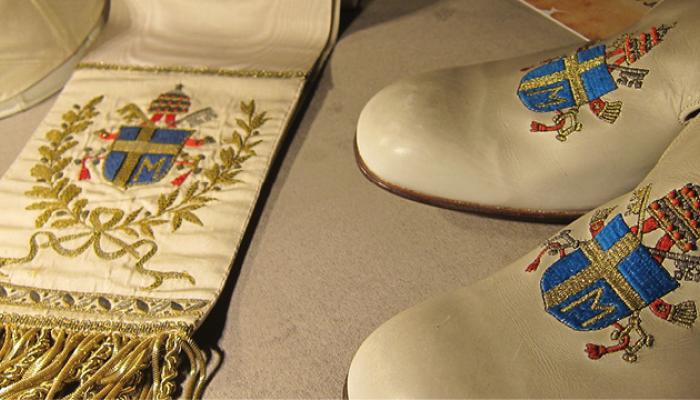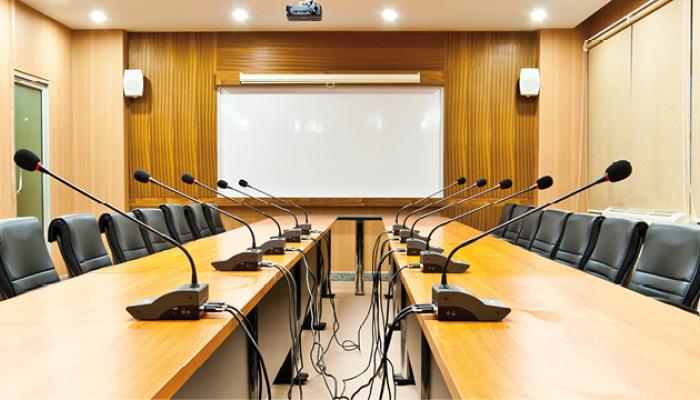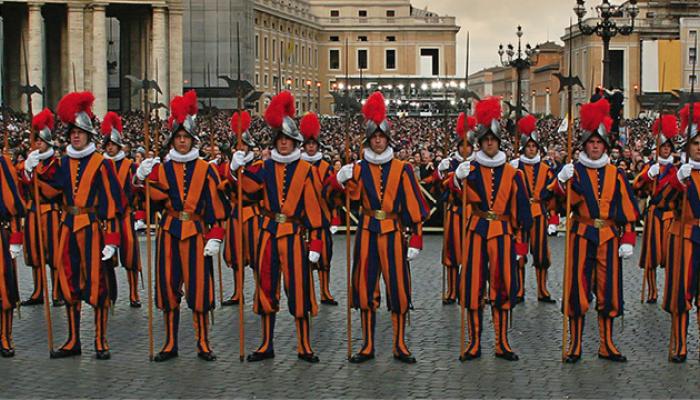
2.2 Comment l'Église catholique est-elle administrée ?
L’Église est gouvernée par le pape (qui est également évêque de Rome), entouré d’autres évêques. Le pape est le successeur de l’apôtre Pierre qui a été choisi par Jésus pour mener l’Église.
Les autres évêques sont les successeurs des autres apôtres. Un évêque est responsable d’un diocèse. Chaque diocèse est divisé en paroisses, qui ont à leur tête des prêtres ou curés.
Why did Christ institute an ecclesiastical hierarchy?
Christ instituted an ecclesiastical hierarchy with the mission of feeding the people of God in his name and for this purpose gave it authority. The hierarchy is formed of sacred ministers,;bishops, priests, and deacons. Thanks to the sacrament of Orders, bishops and priests act in the exercise of their ministry in the name and person of Christ the Head. Deacons minister to the people of God in the diakonia (service) of word, liturgy, and charity. [CCCC 179]
How is the collegial dimension of Church ministry carried out?
After the example of the twelve Apostles who were chosen and sent out together by Christ, the unity of the Church’s hierarchy is at the service of the communion of all the faithful. Every bishop exercises his ministry as a member of the episcopal college in communion with the pope and shares with him in the care of the universal Church. Priests exercise their ministry in the presbyterate of the local Church in communion with their own bishop and under his direction. [CCCC 180]
Why does ecclesial ministry also have a personal character?
Ecclesial ministry also has a personal character in as much as each minister, in virtue of the sacrament of Holy Orders, is responsible before Christ who called him personally and conferred on him his mission. [CCCC 181]
Why is the Church not a democratic organization?
Democracy operates on the principle that all power comes from the people. In the Church, however, all power comes from Christ. That is why the Church has a hierarchical structure. At the same time, however, Christ gave her a collegia structure as well.
The hierarchical element in the Church consists in the fact that Christ himself is the one who acts in the Church when ordained ministers, by God’s grace, do or give something that they could not do or give by themselves, in other words, when they administer the sacraments in Christ’s place and teach with his authority. The collegial element in the Church consists in the fact that Christ entrusted the entire faith to a group of twelve apostles, whose successors govern the Church, with the pope, the Petrine ministry presiding. Given this collegial approach, councils are an indispensable part of the Church. Yet even in other administrative bodies of the Church, in synods and councils, the manifold gifts of the Spirit and the universality of the Church throughout the world can be fruitful. [Youcat 140]
What is the competence of the college of bishops?
The college of bishops in union with the pope, and never without him, also exercises supreme and full authority over the Church. [CCCC 183]
How do the bishops carry out their mission of teaching?
Since they are authentic witnesses of the apostolic faith and are invested with the authority of Christ, the bishops in union with the pope have the duty of proclaiming the Gospel faithfully and authoritatively to all. By means of a supernatural sense of faith, the people of God unfailingly adhere to the faith under the guidance of the living Magisterium of the Church. [CCCC 184]
When is the infallibility of the Magisterium exercised?
Infallibility is exercised when the Roman Pontiff, in virtue of his office as the Supreme Pastor of the Church, or the College of Bishops, in union with the pope especially when joined together in an Ecumenical Council, proclaim by a definitive act a doctrine pertaining to faith or morals. Infallibility is also exercised when the pope and bishops in their ordinary Magisterium are in agreement in proposing a doctrine as definitive. Every one of the faithful must adhere to such teaching with the obedience of faith. [CCCC 185]
How do bishops exercise their ministry of sanctification?
Bishops sanctify the Church by dispensing the grace of Christ by their ministry of the word and the sacraments, especially the Holy Eucharist, and also by their prayers, their example and their work. [CCCC 186]
How do the bishops exercise their function of governing?
Every bishop, insofar as he is a member of the college of bishops, bears collegially the care for all particular Churches and for the entire Church along with all the other bishops who are united to the pope. A bishop to whom a particular Church has been entrusted governs that Church with the authority of his own sacred power which is ordinary and immediate and exercised in the name of Christ, the Good Shepherd, in communion with the entire Church and under the guidance of the Successor of Peter. [CCCC 187]
Can bishops act and teach against the pope, or the pope against the bishops?
Bishops cannot act and teach against the pope, but only with him. In contrast, the pope can make decisions in clearly defined cases even without the approval of the bishops.
Of course the pope in all his decisions is bound by the Church’s faith. There is something like a general sense of the faith in the Church, a fundamental conviction in matters of faith that is brought about by the Holy Spirit and present throughout the Church, the Church’s “common sense”, so to speak, which recognizes “what has always and everywhere been believed by all” (Vincent of Lerins). [Youcat 142]
Let all follow the bishop as Jesus Christ did the Father, and the priests, as you would the Apostles. Reverence the deacons as you would the command of God [St. Ignatius of Antioch, Letter to the Smyrnaens, Chap 8 (MG 5, 713)]





